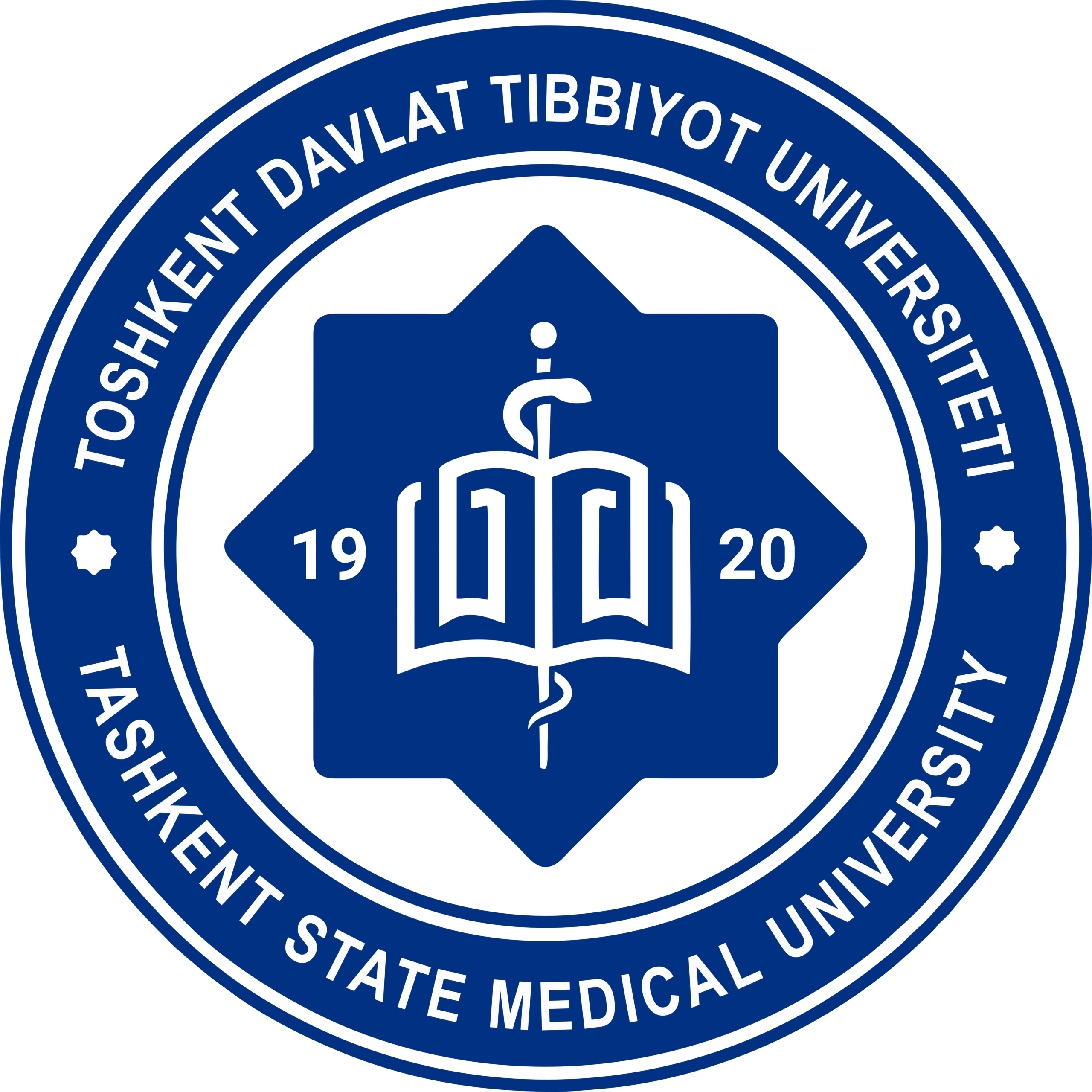Learning process
The following students study at the Department of Environmental Hygiene:
The educational process at the Department of Environmental Hygiene is conducted in Uzbek, Russian, and English.
The department trains students of the 1st, 2nd, and 5th year of medical preventive work, students of the 2nd year of medical treatment, pediatrics, basic medicine, dentistry, and higher nursing, students of the 2nd and 3rd year of ecology and environmental protection, students of the 3rd and 4th year of biomedical engineering, management: management in healthcare, students of the 3rd year of chemistry, and students of the 1st year of pharmacy. At the same time, foreign students of the 2nd and 3rd year of medical treatment and 2nd and 3rd year students are also taught hygiene under a joint program with Kazan State Medical University.
The total number of hours of study in the field of medical prevention is 180 hours for the 1st year, of which lectures are 24 hours, practical training is 66 hours, independent study hours are 90 hours, for the 2nd year – 360 hours, of which lectures are 36 hours, practical training is 116 hours, laboratory is 28 hours, independent study hours are 180 hours; for the 3rd year in the elective subject 90 hours, of which lectures are 12 hours, practical training is 33 hours, independent study hours are 45 hours, for the 5th year total number of hours of study is 60 hours, of which lectures are 12 hours, practical training is 48 hours,
The total number of hours of study in the field of medical work is 180 hours for the 2nd year, of which 18 hours of lectures, 72 hours of practical work, and 90 hours of independent study. The total number of hours of study in the field of pediatric work is 180 hours for the 2nd year, of which 24 hours of lectures, 66 hours of practical work, and 90 hours of independent study.
The total number of hours of study in the field of fundamental medicine is 90 hours for 2 courses, of which 10 hours are lectures, 35 hours are practical training, and 45 hours are independent study.
Total hours of higher nursing education – 2-60 hours per course, of which lectures – 8 hours, practical training – 22 hours, independent study hours – 30 hours. Total study hours of the Dentistry educational direction – 120 hours for the 2nd year, of which lectures – 12 hours, practical training – 48 hours, independent study hours– 60 hours.
The total number of hours of study in the pharmacy education direction is 120 hours per year, of which 30 hours are lectures, 30 hours are practical training, and 60 hours are independent study.
The total number of hours of study in the field of ecology and environmental protection is 120 hours for 2 courses, of which 30 hours of lectures, 30 hours of practical training, and 60 hours of independent study; 90 hours in the elective subject for 3 courses, of which 20 hours of lectures, 25 hours of practical training, and 45 hours of independent study.
The total number of hours of study in the Biomedical Engineering program is 120 hours for 3 years, of which 30 hours are lectures, 30 hours are practical training, and 60 hours are independent study; 60 hours for 4 years, of which 12 hours are lectures, 18 hours are practical training, and 30 hours are independent study.
Management: The total number of hours of study in the field of management in healthcare is 120 hours for 3 courses, of which 18 hours are lectures, 42 hours are practical training, and 60 hours are independent study.
The total number of hours of study in the Chemistry program is 90 hours for 3 courses, of which 26 hours are lectures, 19 hours are practical training, and 45 hours are independent study.
The purpose and objectives of the educational discipline
The purpose of the study of science
Hygiene is an independent science that studies the impact of environmental factors on the human body and, based on the results obtained, develops the most appropriate living and working conditions, nutritional regimens, water supply, and housing for the population.
Tasks of the educational discipline
- Study of environmental factors and their effects on the human body;
- Based on the results obtained, develop hygienic standards and regulations that are insensitive to the human body and do not have harmful effects even with long-term exposure;
- Implementing the developed standards and regulations and monitoring their implementation.



